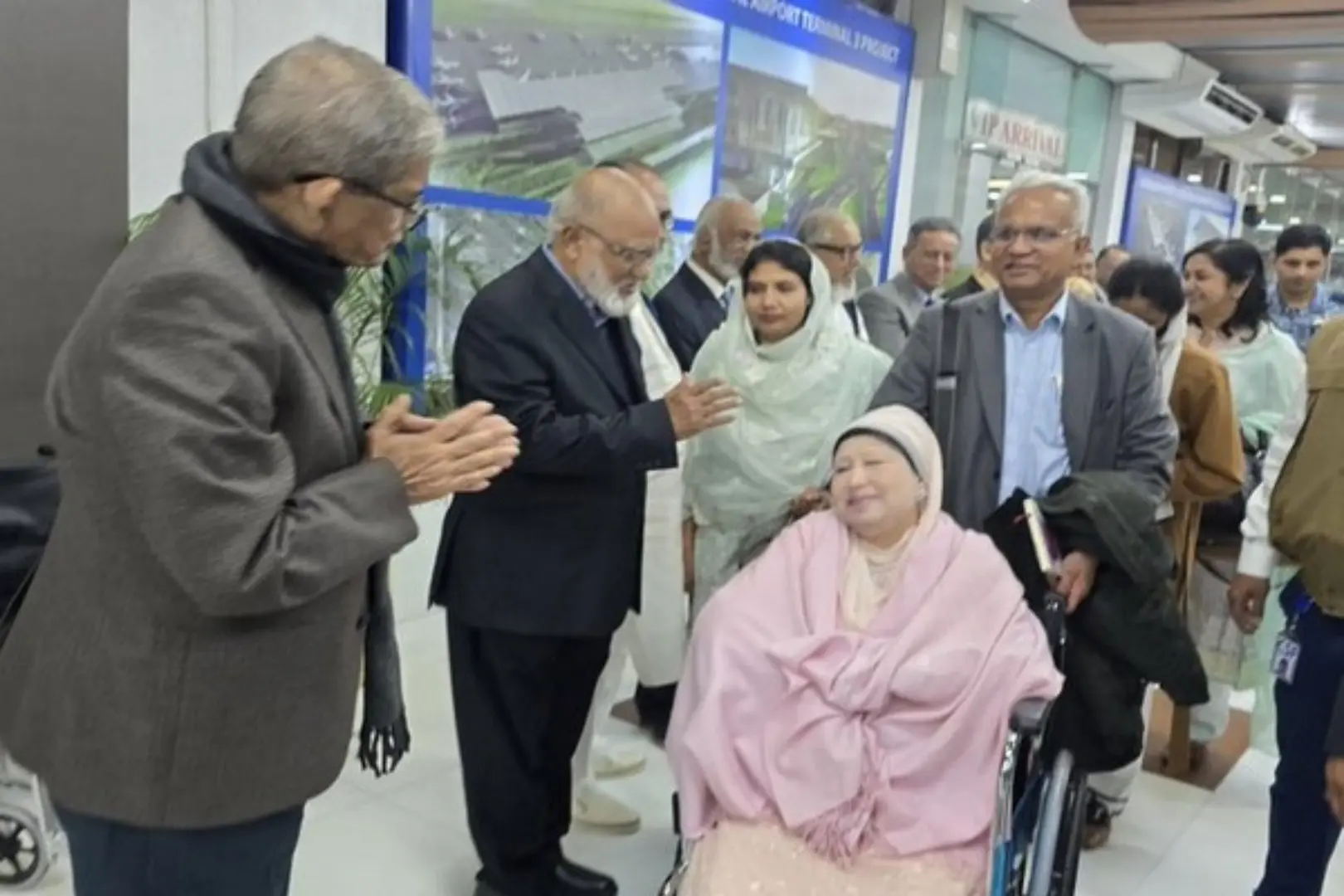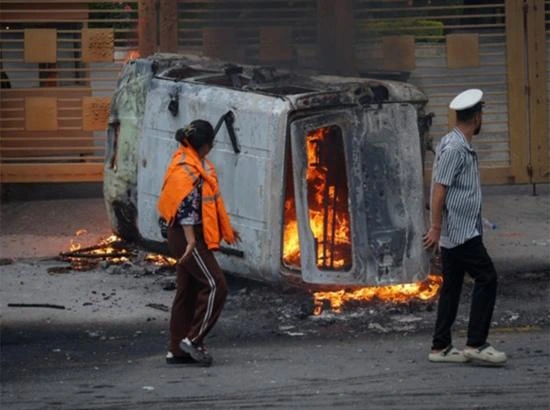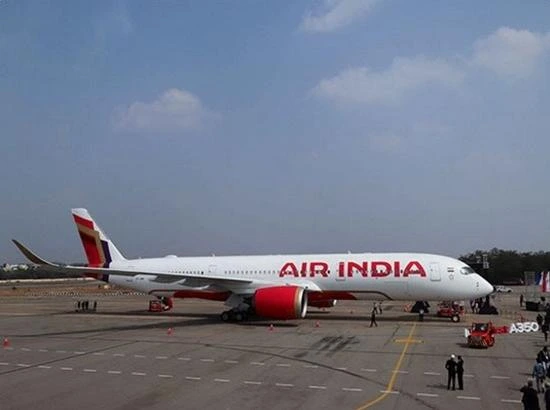08-Jan-2025, 01:47 PM
Khaleda Zia, the former Prime Minister of Bangladesh and a prominent political figure, has departed for London on January 7, 2025, for medical treatment. This journey marks a critical moment in her ongoing health struggles, which include liver cirrhosis, heart disease, and kidney issues. Zia’s departure was facilitated by a special air ambulance arranged by Qatar’s Emir, Sheikh Tamim bin Hamad Al Thani, highlighting the international support she has received during her health crisis.
Khaleda Departure Details
Zia left Dhaka’s Hazrat Shahjalal International Airport late Tuesday night, amidst significant public attention. Her motorcade faced considerable delays due to the throngs of supporters who gathered to bid her farewell, creating traffic chaos along the approximately 10-kilometer route from her residence in Gulshan to the airport. The event was broadcast live on television, showcasing the deep support she commands among her followers. Zahiruddin Swapan, one of her advisers, confirmed that senior leaders of her party, the Bangladesh Nationalist Party (BNP), were present to see her off.
Khaleda : Health Background
At 79 years old, Zia’s health has been a concern for several years. She had previously been released on bail after serving time related to corruption charges that many of her supporters claim were politically motivated. Following her release, she had been receiving treatment in Bangladesh but faced restrictions from the previous government regarding travel for advanced medical care. The interim government led by Nobel laureate Muhammad Yunus has since allowed her to seek treatment abroad.Initially, Zia will stay at her son Tarique Rahman’s residence in London before proceeding to Johns Hopkins University Hospital in Maryland for specialized liver treatment. A multi-disciplinary medical team will oversee her care there, having previously conducted a specialized procedure in Dhaka to manage her liver complications.
Khaleda : Political Implications
Zia’s departure comes at a politically charged time in Bangladesh. Following a student-led uprising that ousted former Prime Minister Sheikh Hasina last August, the political landscape remains uncertain. With Hasina now in exile and Zia’s absence creating a symbolic vacuum, there are concerns about the rise of Islamist parties amid shifting political dynamics.As Zia embarks on this critical journey for her health, her supporters remain hopeful for her recovery and eventual return to lead the BNP in its ongoing political struggles for democracy in Bangladesh. The upcoming elections planned for December 2025 or early 2026 will be pivotal for both Zia’s party and the future of Bangladeshi politics.





